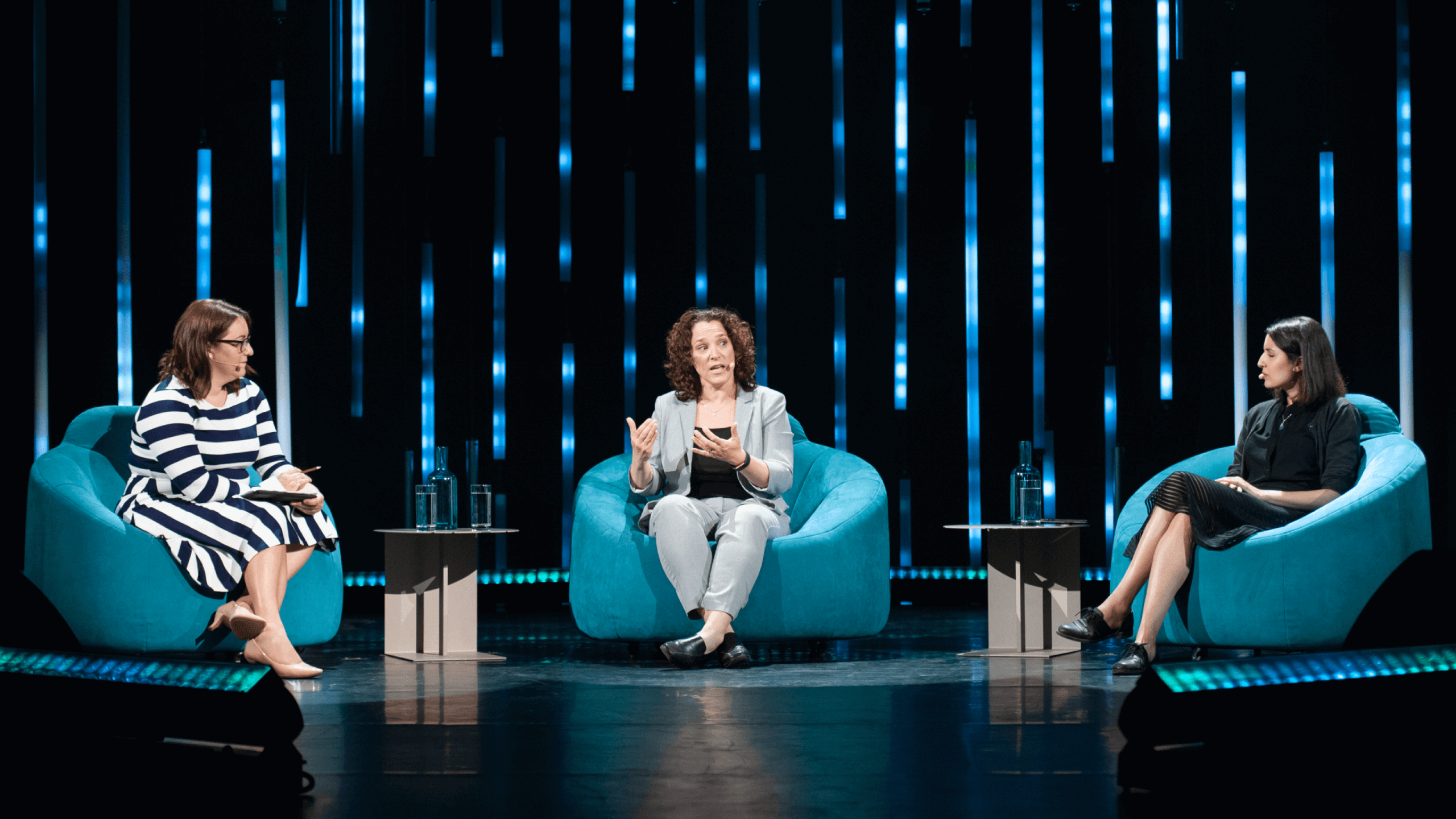
When the world lined up to start the AI race, Canada was out of the gate like Andre de Grasse, taking the lead on research and development.
Now, can we lead on tackling its ethical and societal implications?
The news is flooded with examples of AI fails: algorithms that favour male job applicants over women, or image recognition software failing to correctly identify people of colour.
Dr. Foteini Agrafioti, the Head of RBC Borealis and one of the country’s strongest voices on ensuring AI is ethical, is also the co-chair of Canada’s Advisory Council on AI. She led the RBC Disruptors conversation about battling bias in AI with Dr. Elissa Strome, Executive Director, Pan-Canadian AI Strategy at CIFAR, and Dr. Layla El Asri, Research Team Lead at RBC Borealis and formerly Research Manager at Microsoft Research Montréal.
Here are their thoughts on what the scientific community, governments and ordinary citizens can do to confront bias in artificial intelligence, and position Canada as a leader in ethical AI.
1. Use Technology to Expose Bias
Bias has long existed in our society – and so it exists in our data. El Asri sees this as an opportunity. Unlike our own unconscious bias, we can at least uncover bias in an algorithm. To do this, companies need to be auditing their AI for bias every step of the way, as the major labs are now doing. El Asri credited Canadian leaders, such as AI pioneer Yoshua Bengio, for developing a will in Canada’s tech community to develop AI in a responsible way.
2. Diversify the Industry
Right now, artificial intelligence is being developed by a very narrow subset of society: mainly highly-educated men who went to the same schools, and now live in the same cities. Only 18% of AI researchers are women, a fact that Strome called “terrible.” Organizations like CIFAR are working to bring more voices into the development of AI, with initiatives such as the AI for Good Summer Lab, a seven-week training program for undergraduate women in AI.
3. Diversify the Data
AI is only as good as the data it’s trained on. “If your data is not representative enough, your model is not going to work,” El Asri said. There needs to be more vigilance in ensuring data is representative — an area where Canada has a homegrown advantage. If you’re working with data collected in a multicultural country like ours, you’re likely working with data that represents different ethnic backgrounds. This kind of data will be essential to building technology that works for everyone, especially when it comes to something like health care.
4. Talk to the Social Scientists
Right now, it’s really just the tech community and policy-makers talking about issues that are going to transform our society. We need to broaden that perspective, building in consultation with social scientists as an integral part of the development process. A recent CIFAR initiative brought together computer scientists and social scientists for a day to discuss the social, legal and ethical implications of AI. “The computer scientists were so eager to get their advice and insights,” Strome said. Similarly, at her former employers Microsoft, El Asri noted that their AI and ethics committees are made up of people from different disciplines, including anthropologists and historians.
5. Educate the Public
“There’s a lot of fear and misunderstanding and myths about AI,” Strome said. Over the next few years, it’s going to be critical to bring the public into the AI conversation. People need to be aware of the positive implications, as well as the risks, that AI will have on their lives. The better the next generation understands AI and its societal and ethical implications, the better prepared they’ll be to ask tough questions of their leaders. Agrafioti suggested that Canadian culture is particularly attuned to ensuring fairness, casting a critical eye on technology before implementing it. Our balance of technical expertise and social values is exactly what’s needed to make sure the product that gets to market is ethical.
6. Strong Governance
AI has been advancing much faster than any government can regulate it — so it was big news this week when the OECD adopted a set of AI principles, which set values-based standards for developing AI. Our leaders have an incredibly important role to play in developing policy and regulations around the use of AI, both domestically and internationally. Strome noted that Canada’s solid international reputation could go a long way in urging the world to play catch-up. Last summer, Prime Minister Trudeau and President Macron announced a joint Canada-France initiative on an International Panel on AI to support and guide the responsible adoption of AI, grounded in human rights. The first symposium will be in Paris this fall.